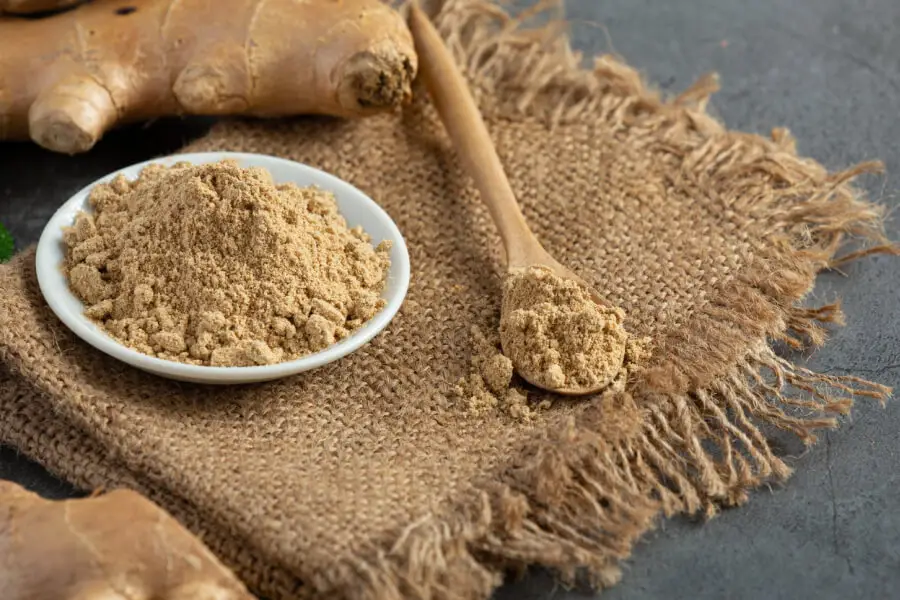Asian ginseng, also known as Panax ginseng, is a renowned herbal remedy with a history spanning thousands of years.
From boosting energy levels to enhancing cognitive function, this root has been lauded for its potential health benefits.
However, determining the appropriate dosage can be tricky, as it varies based on individual needs and health conditions.
Some uses for Panax Ginseng (Asian)
- Diabetes
- Cholesterol
- Inflammation
- May relieve hot flashes
Why Should I Take Asian Ginseng?
Energy Boosting: Many people turn to Asian ginseng to combat fatigue and increase stamina.
Cognitive Enhancement: It may improve mental clarity, focus, and memory.
Immune Support: This herb is known for its potential to strengthen the immune system.
Stress Relief: It can help manage stress and promote relaxation.
Anti-inflammatory Properties: Ginseng has been studied for its ability to reduce inflammation.
Key Differences Between Asian Ginseng and Other Forms of Ginseng
Asian (Panax ginseng): Known for its invigorating properties.
American Ginseng (Panax quinquefolius): Typically used for its calming effects.
Siberian Ginseng (Eleutherococcus senticosus): Technically not true ginseng but often marketed similarly, known for its adaptogenic properties.
Recommended Dosage of Asian Ginseng
The optimal dosage of ginseng depends on several factors, including age, health condition, and the specific benefits sought. Here are general guidelines:
- General Well-being: 200-400 mg of standardized ginseng extract (containing 2-3% ginsenosides) per day.
- Cognitive Enhancement: 400-600 mg per day, often divided into two doses.
- Energy Boosting: 200-400 mg per day, preferably in the morning or early afternoon.
Best Time to Take Asian Ginseng
For optimal results, consider these timing recommendations:
- Morning: To enhance energy levels and cognitive function throughout the day.
- Before a Workout: To boost stamina and performance.
- Afternoon: To combat the midday slump.
Avoid taking ginseng late in the evening as it may interfere with sleep due to its stimulating effects.
Is It for All Ages?
While ginseng is generally safe for adults, its use in children and teenagers is less common and should be approached with caution. Always consult a doctor before giving ginseng to younger individuals.
What Are the Side Effects of Panax Ginseng?
Ginseng use is common. It is even found in beverages, which may lead you to believe it’s completely safe. But like any herbal supplement or medication, taking it can result in unwanted effects.
The most common side effect of ginseng is insomnia. Additional reported side effects include:
- Blood pressure changes
- Mastalgia (breast pain)
- Vaginal bleeding
- Insomnia: Due to its stimulating properties.
- Digestive Issues: Such as nausea, diarrhea, or stomach cramps.
- Headaches: A possible response to increased energy levels.
- Changes in Blood Pressure: It can either elevate or lower blood pressure.
Which Form to Choose?
Asian ginseng is available in various forms:
- Capsules/Tablets: Convenient and standardized dosages.
- Powder: Versatile for mixing into drinks or foods.
- Teas: Offers a soothing way to consume ginseng.
- Extracts: Highly concentrated and fast-acting.
Choose the form that best suits your lifestyle and preferences.
Conclusion
Determining the right dosage of ginseng involves understanding your individual needs and health goals.
Start with a lower dose and adjust as necessary, while keeping an eye on any side effects.
Always consult with a healthcare provider before starting any new supplement regimen.
FAQs
How much Asian ginseng per day?
For general well-being, 200-400 mg per day of standardized extract is recommended.
How long does it take for Asian ginseng to work?
Some effects may be noticed within a few days, while others, such as improved cognitive function, may take several weeks.
How do you take Asian ginseng?
Asian ginseng can be taken in various forms, including capsules, powders, teas, and extracts. Follow the dosage instructions on the product label or as advised by a healthcare professional.
Is it safe to take Asian ginseng?
Yes, when taken in recommended doses. However, consult a healthcare provider if you have any underlying health conditions or are taking other medications.






